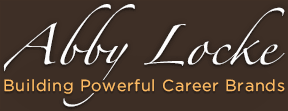
 I think my body knows that we (my body and I) will be on hiatus soon because all I can think of is the quiet sedate area where my parents live…4 more days!
I think my body knows that we (my body and I) will be on hiatus soon because all I can think of is the quiet sedate area where my parents live…4 more days!
Well, I hope it is all coming together for you…by now, we are halfway through our career success series. If you have been following the exercises closely, you should have shed past career mistakes, become very confident about your life/career achievements, and have clarity around your personal brand.
So what do you do with all this great wealth of personal insight? Let’s find out…on the sixth day of the holidays, my career coach said to me:
Create a standout, “WOW” executive resume
The best way to centralize your value proposition and unique strengths is in a well-written, compelling resume. Understand that the resume is the first step and can serve as a foundation for other career marketing documents.
Here are some tried-and-true resume strategies to consider
A. Have Target Position(s) In Mind
No matter how well you present your career background, if you are not keeping the employer’s needs in mind, you are creating a useless document.
- Only include relevant experience, qualifications, education, training and projects that position you for your target position.
If you are targeting senior-level marketing positions then your entire resume should only speak to that – the fact that you have a real estate license and a Master in Social Work is commendable, but not relevant.
B. Make Resume Profile Appealing
In these days of electronic and technology-based communications, an employer or recruiter can be viewing your resume through a Blackberry, iPad, iPhone, or the latest tablet.
Make sure that the top third of your executive resume has a clear title header, personal branding statement and powerful summary that speaks your VALUE to employers.
C. Give Your Executive Resume Breathing Room
Please, please, please do not try to squeeze 15+ years of progressive leadership experience and achievements onto one page. A two-page resume is acceptable and even expected when you are senior-level professional.
- Prioritize the content for your executive resume according to your target position and that would help you create a balanced document.
- Give preference to the positions and career achievements that you have built in the past 15 – 20 years and summarize any early experience in a paragraph
- Place education, training and certifications on the first page if they are critical requirements for the position. For example, a project manager should list PMP certification next to his/her name or senior auditor would indicate his/her CPA designation right up front.
- Lose all emotional ties to your career or accomplishments, if it’s not RELEVANT or ESSENTIAL to your career goals and target company, leave it off the resume.
D. Shows More Achievements And Less Tasks On Your Resume
Don’t bore readers with a laundry list of your tasks and responsibilities instead focus on your achievements and how you have impacted a company’s growth.
- Use bullets to draw quick attention to key defining achievements and limit five achievements for each position going back to about 15 years.
Remember, the executive resume is simply the key that opens the door for further in-depth conversation, but it still has to compelling enough to warrant a phone call or a closer look.



